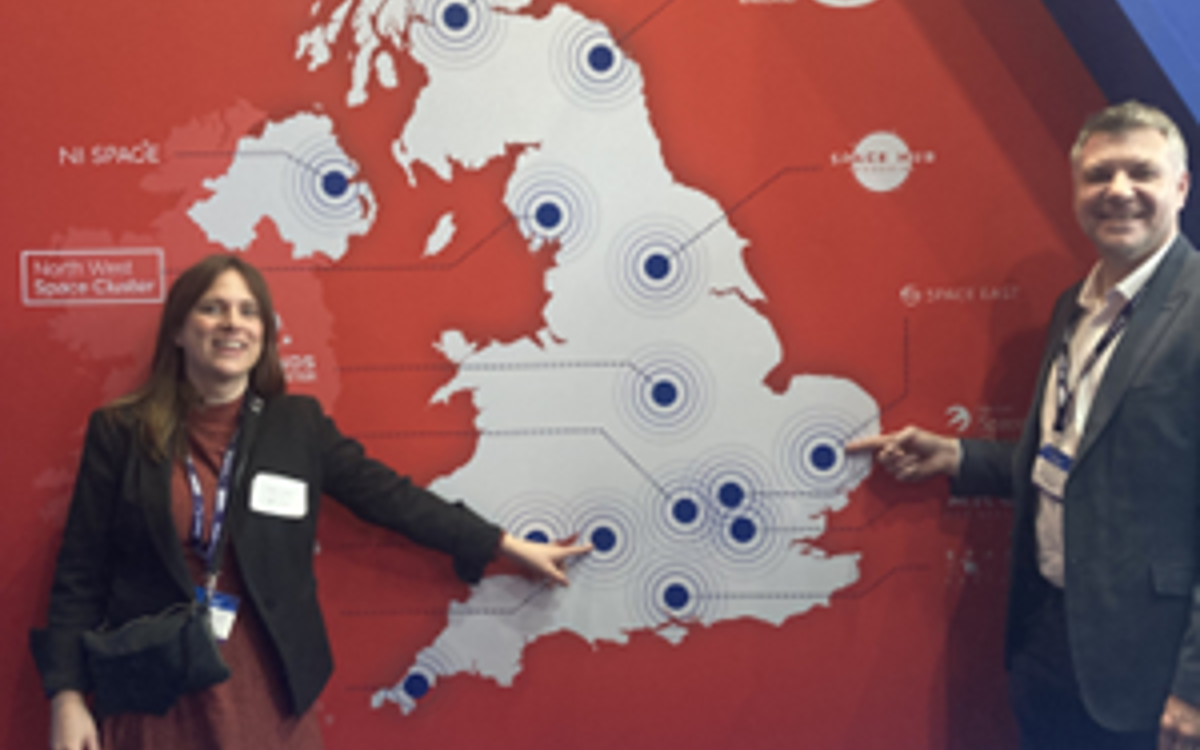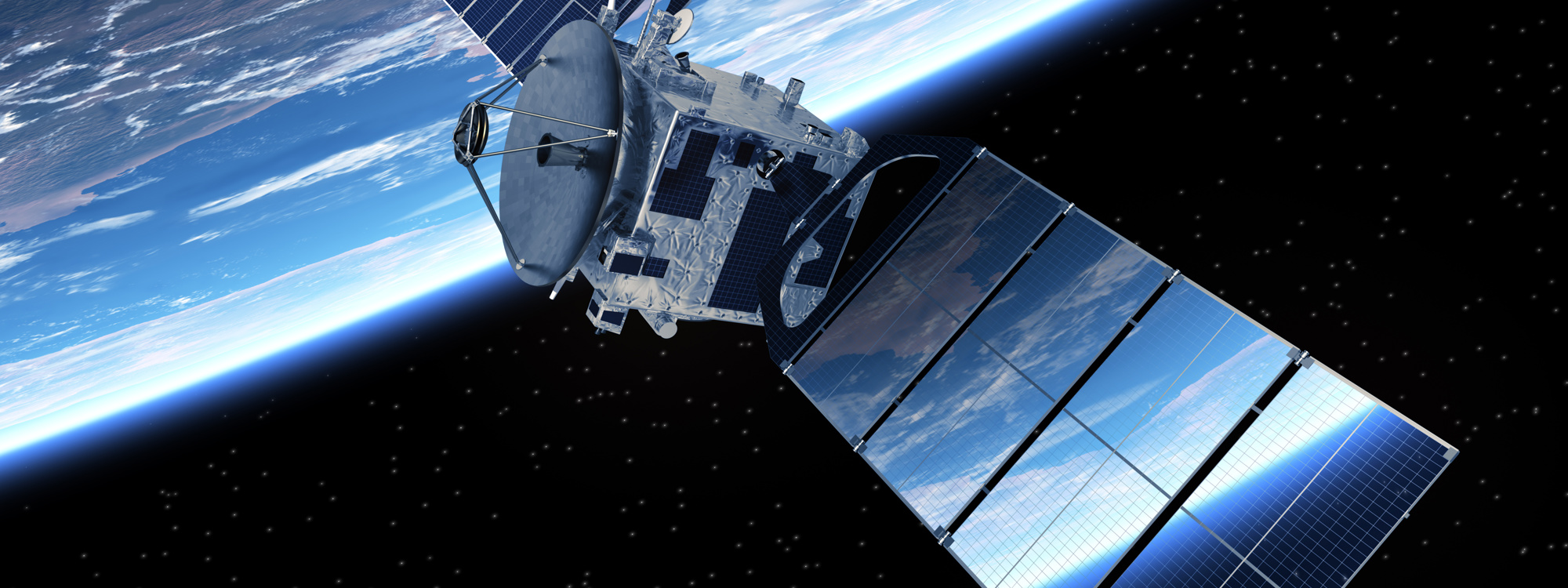
Space West - May Newsletter
News from the cluster
Welcome to the May edition of our Space West Newsletter. With each newsletter, we aim to share the most recent discoveries, advancements, and stories from the world of Space in the South West.
About Space West
Space West is a regional consortium of academic and industry partners designed to accelerate growth and innovation in the space sector within the region and nationally. The Space West programme is hosted by the National Composites Centre, in partnership with West of England Combined Authority, the Centre for Modelling and Simulation, the University of Bath, the University of Bristol and the University of the West of England.
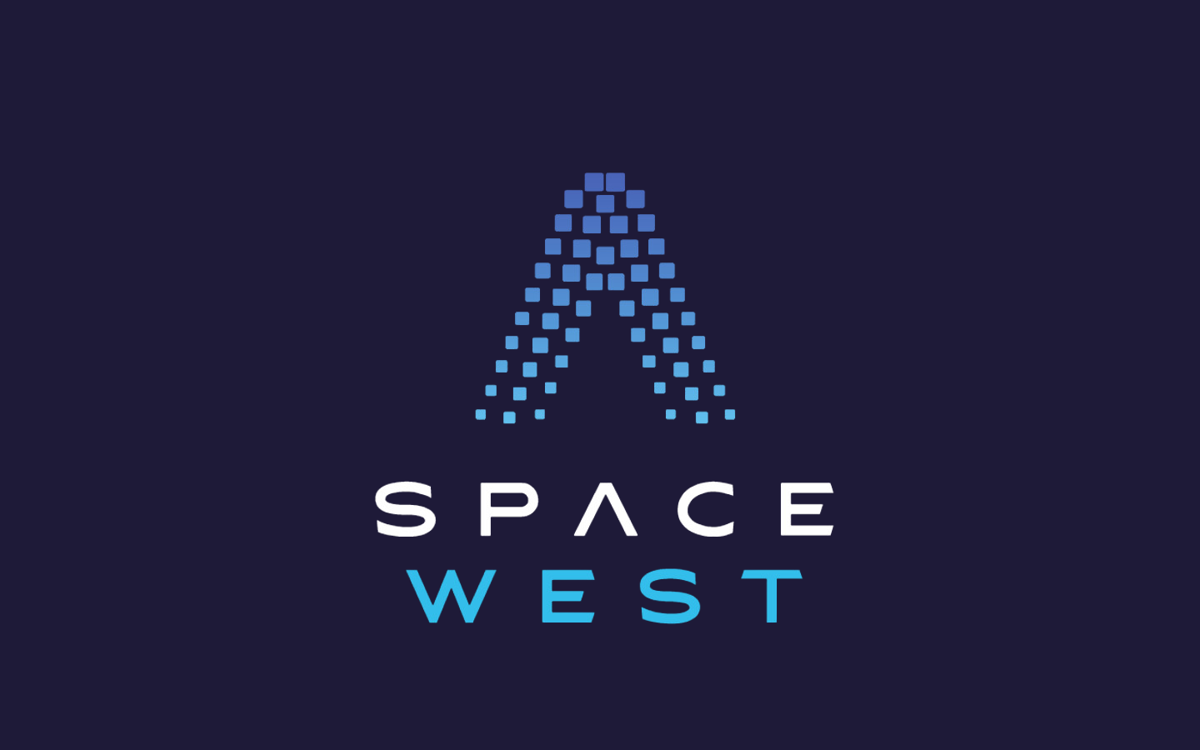
Earthcare Mission and Thales Alenia Space Bristol
With the launch of ESA’s EarthCARE mission at the end of this month it was great to see Nigel Wright’s blog post highlighting the leadership, expertise and tenacity of the SEA team in Bristol in winning the bid to lead the delivery of the BroadBand Radiometer (BBR) on the Earthcare mission. Equipped with four instruments, the Earth Cloud Aerosol and Radiation Explorer (EarthCARE) satellite mission has been designed to make a range of different measurements that together will shed new light on the role that clouds and aerosols play in regulating Earth’s climate.
The Bristol team came to provide not just one of the four instruments on EarthCARE but also made key contributions to the other three instruments. A very significant achievement for the team in Bristol. The total contract value was in excess of 30 Million Euros and this represented approx. 10% of the spacecraft by value. In 2015 Thales Alenia Space (TAS) acquired the SEA space division and the EarthCARE work was completed under the TAS UK banner.
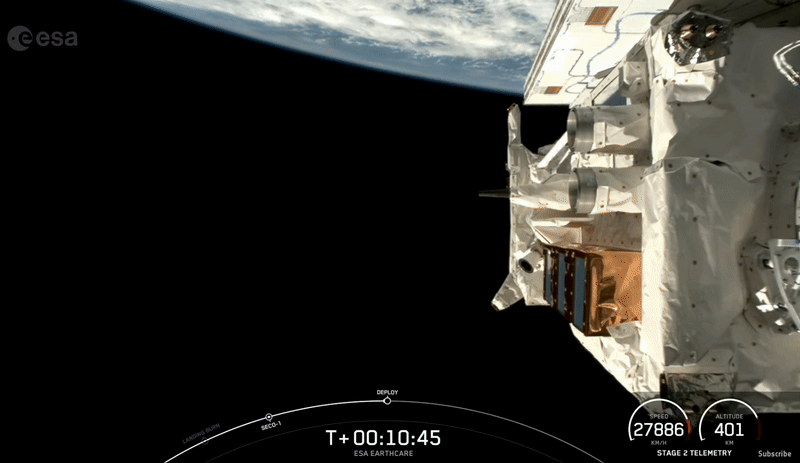
ESA’s EarthCARE satellite embarked on its journey into space on 29 May at 00:20 CEST (28 May, 15:20 local time) aboard a Falcon 9 rocket from the Vandenberg Space Force Base in California, US. Ten minutes after liftoff, EarthCARE separated from the rocket as this footage shows, which was captured by a camera on the rocket.

SWAN and Space West host successful networking event in Bristol
The South West Aerospace Network (SWAN) made a triumphant return to Bristol in May, partnering with Space West for an exceptional networking evening. This relaxed and informal gathering allowed space professionals and enthusiasts to connect and exchange ideas.

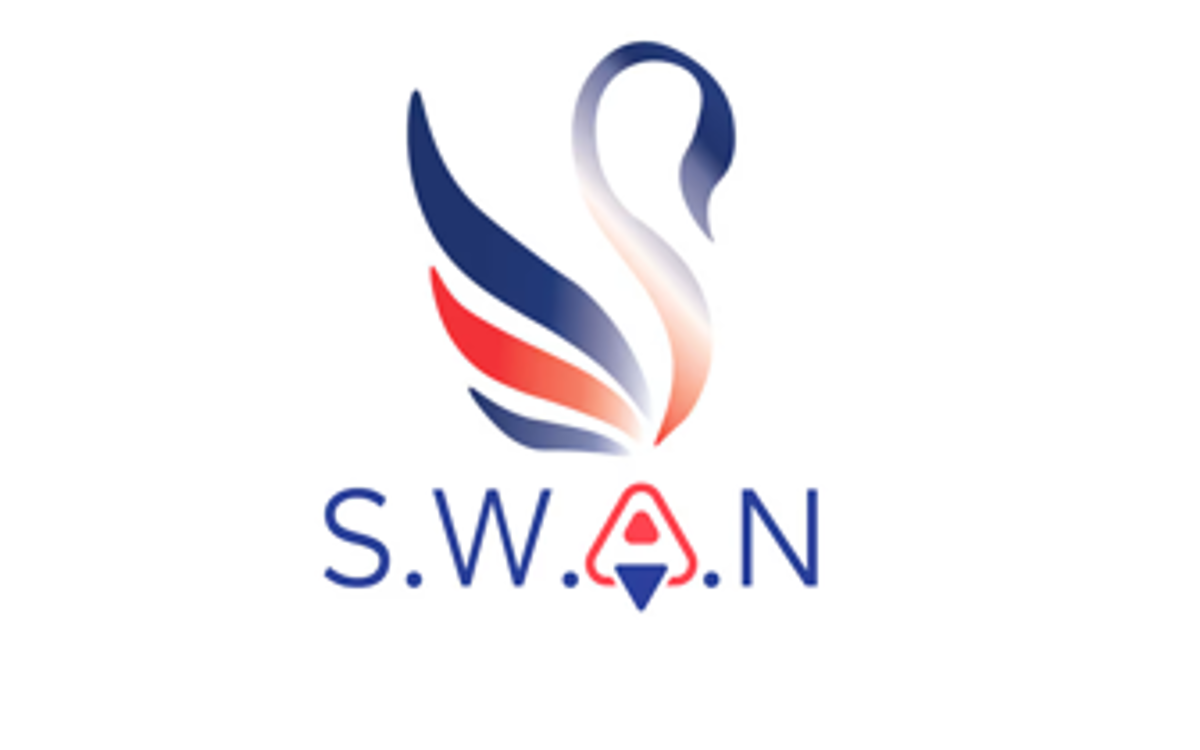
Rebecca Huffee highlights cyber opportunities at CyberICE Conference
Space West Cluster Manager, Rebecca Huffee, attended the the Swindon and Wiltshire Cyber Cluster's CyberICE Conference 3.0 in Swindon. Rebecca presented at the event, discussing exciting opportunities for integrating cyber technologies into the space sector. Cyber and space are naturally linked and by bringing together people and ideas we can help enable the security of our space assets.
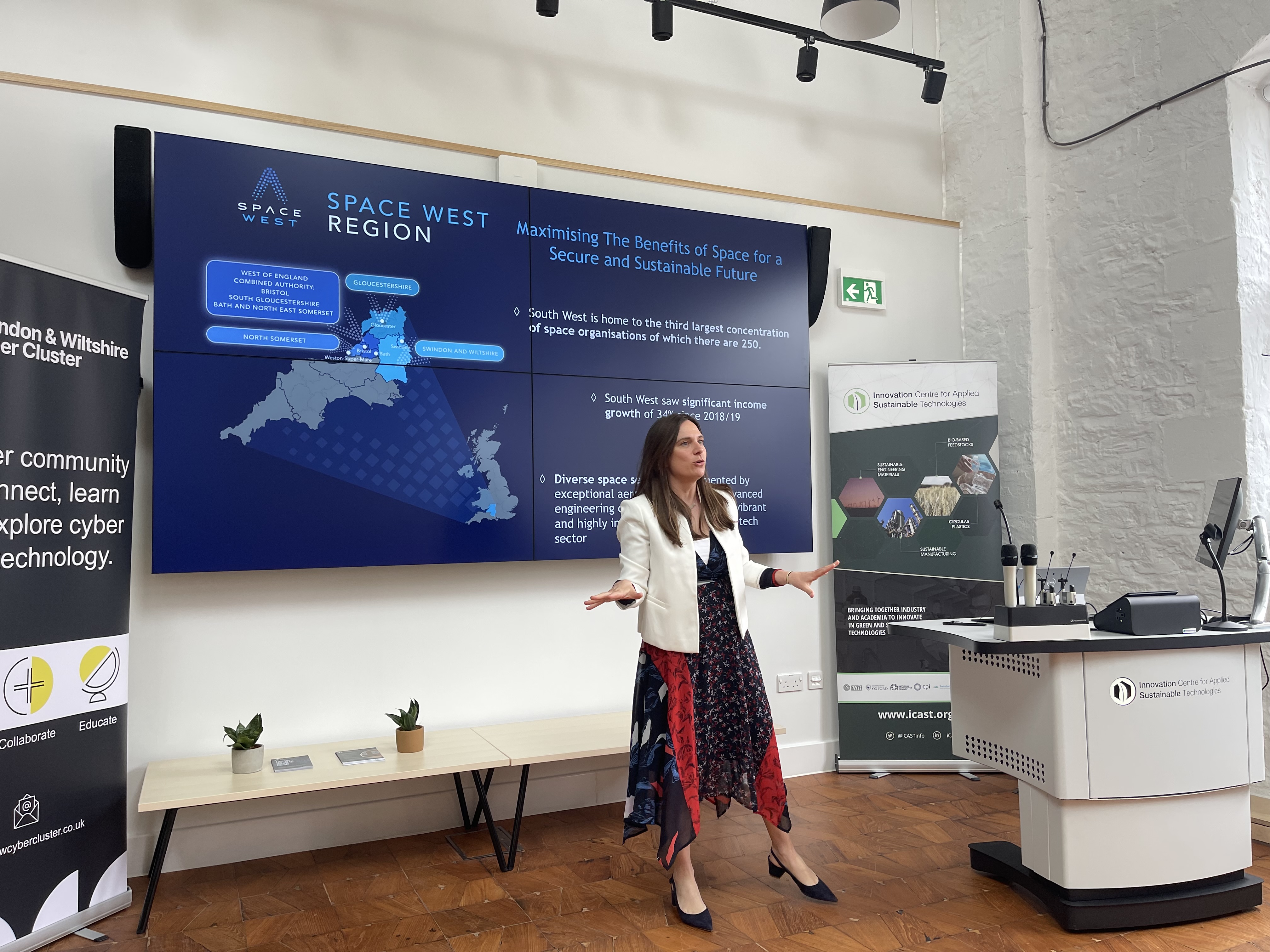
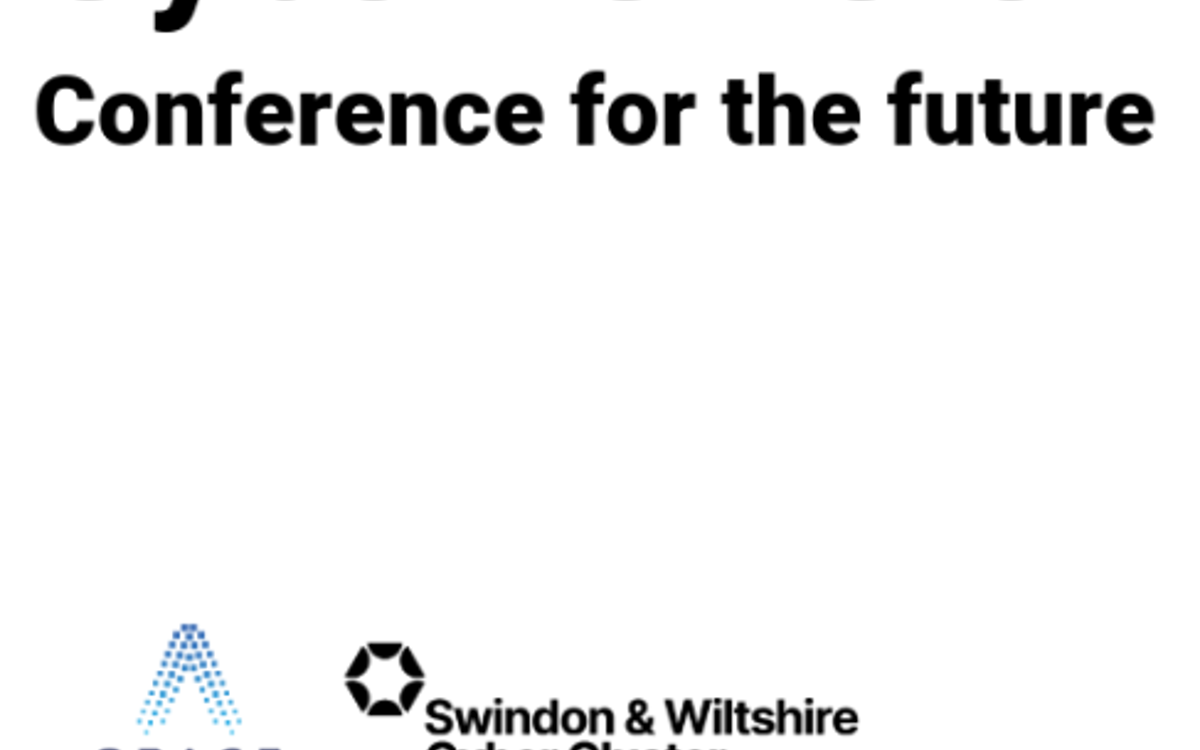
Rebecca Huffee represents Space West at Bath Digital Festival
Rebecca Huffee, Space West Cluster Manager attended and spoke at the Bath Digital Festival on two insightful panels on ‘Big Debate - Innovation, Opportunity and Ownership’ and ‘What right does Bath have to talk about Space?’
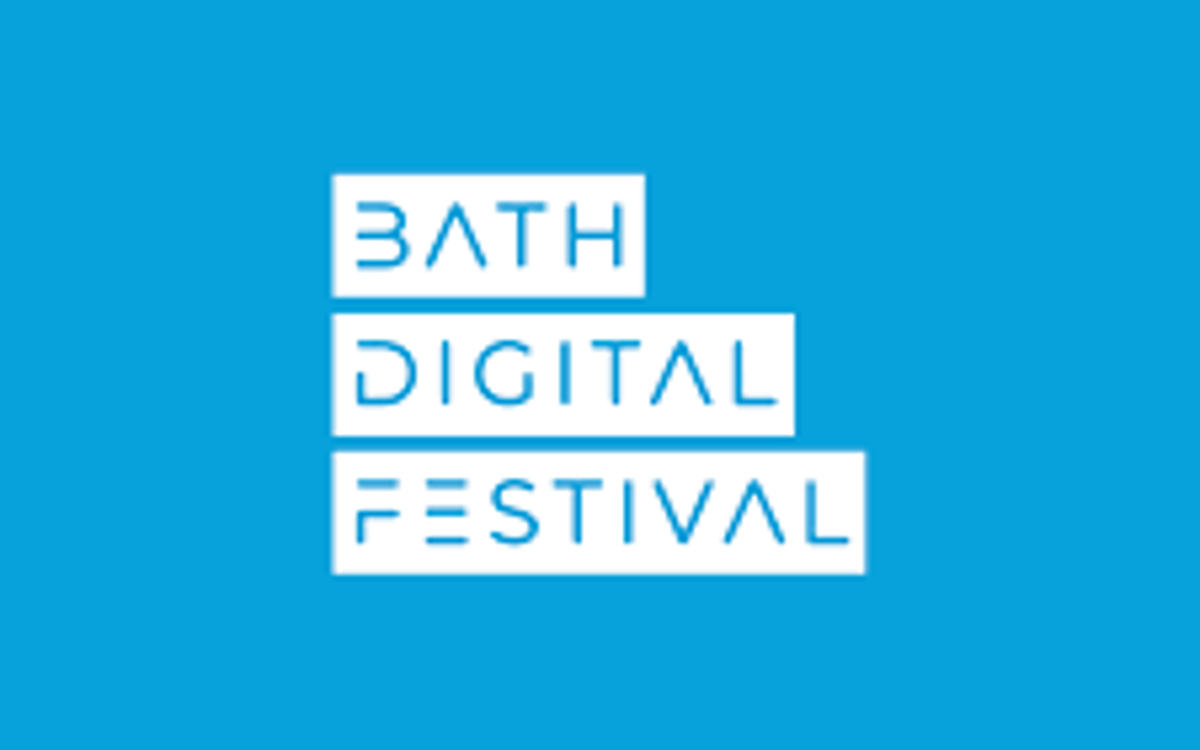
Spotlight on Matsuura Machinery
Check out our 'Spotlight' on section to discover stand out companies making waves in the regions space industry. Learn about innovations, achievements, products and contributions to the field.
Matsuura Machinery Ltd are award winning resellers of premium multi-axes and fully automated CNC machine tools, 3D printers and AM post processing systems.
Operating from a state of the art facility in North West Leicestershire, over the past 30 years Matsuura have established themselves as market leaders for leading edge manufacturing technology, whilst offering Applications, Materials, Service, Spares support and a customer experience that is second to none in the UK CNC and 3D technology supply chain.
With an enviable end user customer list in both CNC and AM, Matsuura customers span the entire spectrum of UK manufacturing; from owner operators to multi-national blue chip companies.
The Matsuura UK product portfolio includes HP MJF 3D printers – with over 90 customer machines under Matsuura care in the UK manufacturing supply chain, as well as DyeMansion post-processing systems for turning raw 3D parts into highly finished, high value components and products.
Matsuura’s Additive Manufacturing Centre in Leicestershire is regarded as a UK centre of excellence for 3D printing and post-processing, serving our customers as a total life care support hub for their growing 3D manufacturing businesses.
Immersive “Additive Manufacturing Experience Days” are available at the Matsuura AMC for UK manufacturers who are thinking of dipping their toes into the world of 3D / AM production, offering a full day, free of charge, for companies to send their production team on a deep dive “sales free” technology exposure day.
A similar offering is made for UK CNC manufacturers who are looking for a deeper understanding of multi-pallet 5 axis technology and the “lights-out” unmanned manufacturing strategies employed to maximise operational profitability.
Engineering is at the heart of the Matsuura ethos of customer service, and Matsuura UK pride themselves on their deep understanding of manufacturing processes, its associated technology and effective production strategies.

Research in Focus
Explore academic research happening right here in the region. Stay informed about the latest advancements and contributions from our local scientific and engineering community.
Disaster Risk Reduction from Space
Volcanoes are both visually spectacular and inherently dangerous. Whilst volcanoes can threaten communities in many ways, hazardous flows are often the most worrying, particularly lahars and pyroclastic density current (PDC). Lahars are mudslides often triggered by heavy rain while PDCs are avalanches of hot gas and ash that travel at incredible speeds downslope, destroying everything in their path. These two hazards are responsible for about 60% of all volcanic fatalities.
In June 2018 a PDC killed hundreds of people in San Miguel Los Lotes, a community south of the summit of Volcán de Fuego in Guatemala. To reduce the risk of similar future events causing fatalities, modelling can be used to predict flow runout and critically, suggest where the flows might exit the valleys they typically travel down. The landscape changes rapidly: valleys can fill during PDC events in hours, and a few days of heavy rain can carve new channels through the generation of lahars. Therefore, there is a balance between how fast volcanic material is emplaced and removed.
We retroactively investigated the 2018 event by using satellite and drone-based images to create digital elevation models of the terrain. This work was prompted by a radar image acquired during the Disasters Charter call (figure 1) that showed second pyroclastic flow headed West into a different valley but whose run out was shortened significantly by the flow making a very sharp right and then left hand turn.
Our work showed that the valley, which was being quickly eroded in early 2017, completely filled with material during a PDC event in May of that year. Heavy rains that year, associated with La Niña, carved out a new channel, which, during the 2018 event redirected the PDC away from population centres and up a steep slope (Figures 2), slowing the flow considerably and causing it to come to rest well before anyone was threatened.
Our research highlights both the dynamism of the landscape in the Guatemalan cordillera and the vital importance of terrain measurements in predicting future disasters. It also demonstrates the vital need for timely terrain data, as changes can occur rapidly and dramatically change the impact of hazardous flows. Students at the University of Bristol are working on this problem on a mission called PROVE (Pointable Radiometer for Observing Volcanic Emissions), a multi-angle imaging system that is designed to resolve both as grounds and, critically in this case, the Earth’s surface.
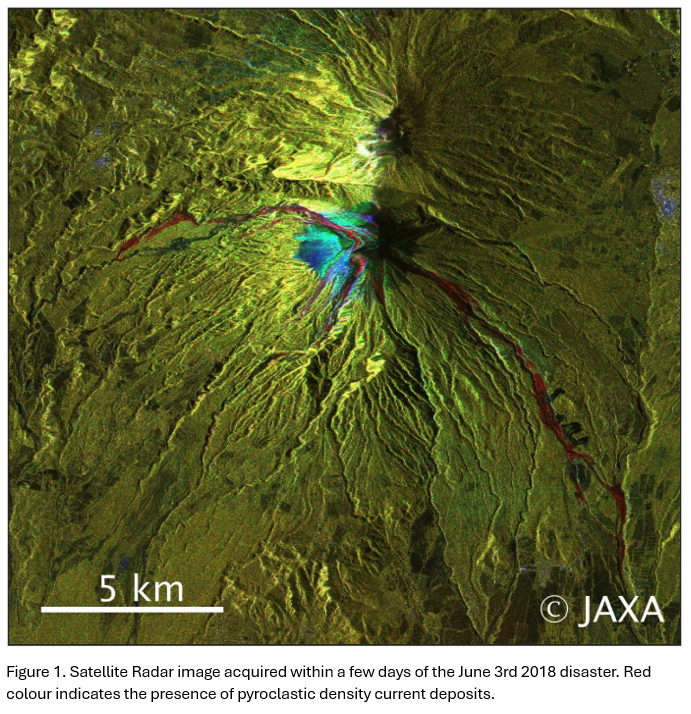
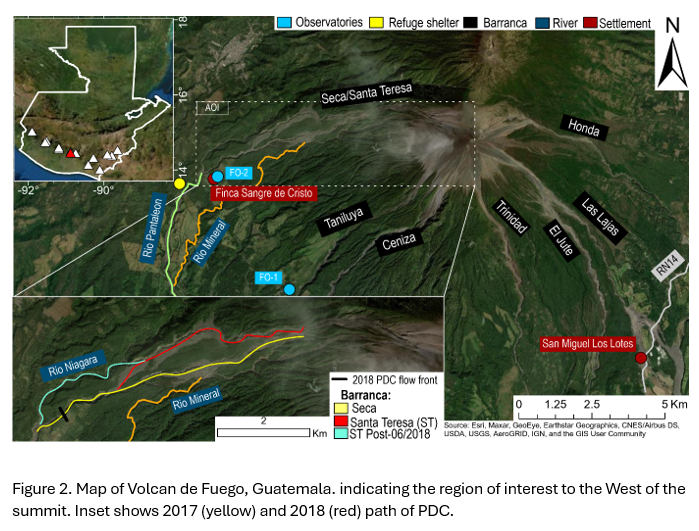
Biographies

Ben Ireland is a PhD student in the School of Earth Sciences interested in building systematic global catalogues of volcano deformation events and investigating the links between magmatic processes and ground deformation patterns using machine learning approaches (largely clustering methods). He is also involved in projects on volcanic hazards, geomorpholgical change, science communication and disaster preparedness.

Professor Matthew Watson is a volcanologist at the University of Bristol known for his extensive research on volcanic hazards and the interaction between volcanic eruptions, the atmosphere and the environment. His research primarily focuses on understanding volcanic processes, particularly the dynamics of volcanic plumes and clouds. He investigates the impact of volcanic ash on aviation, using remote sensing technologies to monitor volcanic activity. including the use of satellites and other airborne instruments to track and analyse volcanic emissions.
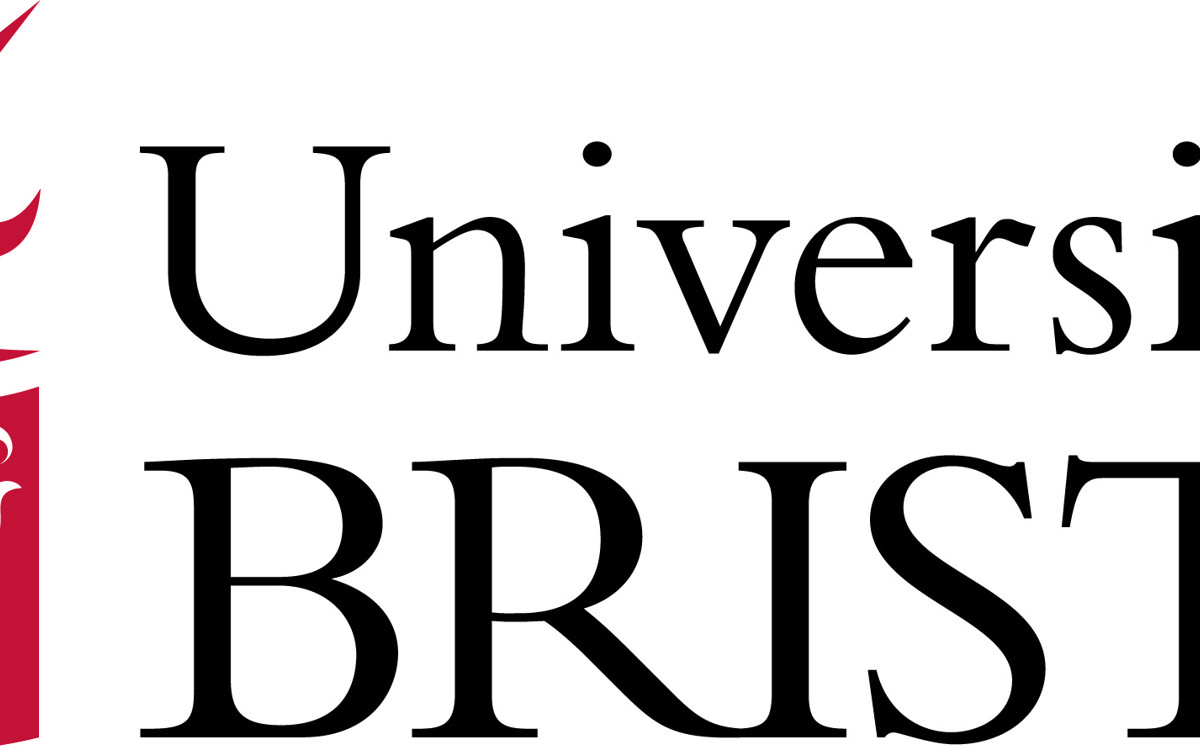
Opportunities
Stay up to date with the latest grants and funding support available in the space industry. Propel your projects and research to new heights!
Run by the Defence and Security Accelerator (DASA) aims to inspire companies to win new business, develop industrial capabilities, and provide new cutting-edge answers to defence problems at home and abroad, ensuring the UK expands its competitive, pioneering and world-class defence and security industries. The £16 million programme is designed to support small and medium-sized enterprises (SMEs) across the UK to develop innovative materials, technologies and processes, and to enhance defence supply chains.

A notice of a key ESA Space Solutions theme for 2024: Commercial Applications of Space-Enabled Robotics
This funding is looking to combine some of the breakthroughs in robotics (enhanced autonomy, dexterity, and interaction capabilities) with parallel advancements in the space sector meaning that satellite technologies now have the capability to enable novel services utilising robotics.
There will be 6 sub-theme dates through 2024:
Smart Cities and Infrastructure: 1st March 2024 – 1st May 2024
Transportation and Logistics 1st April 2024 – 1st June 2024
Energy and Utilities: 1st May 2024 – 1st July 2024
Health and Safety: 1st June 2024 – 1st September 2024
Maritime: 1st September 2024 – 1st November 2024
Agriculture: 1st October 2024 – 1st December 2024
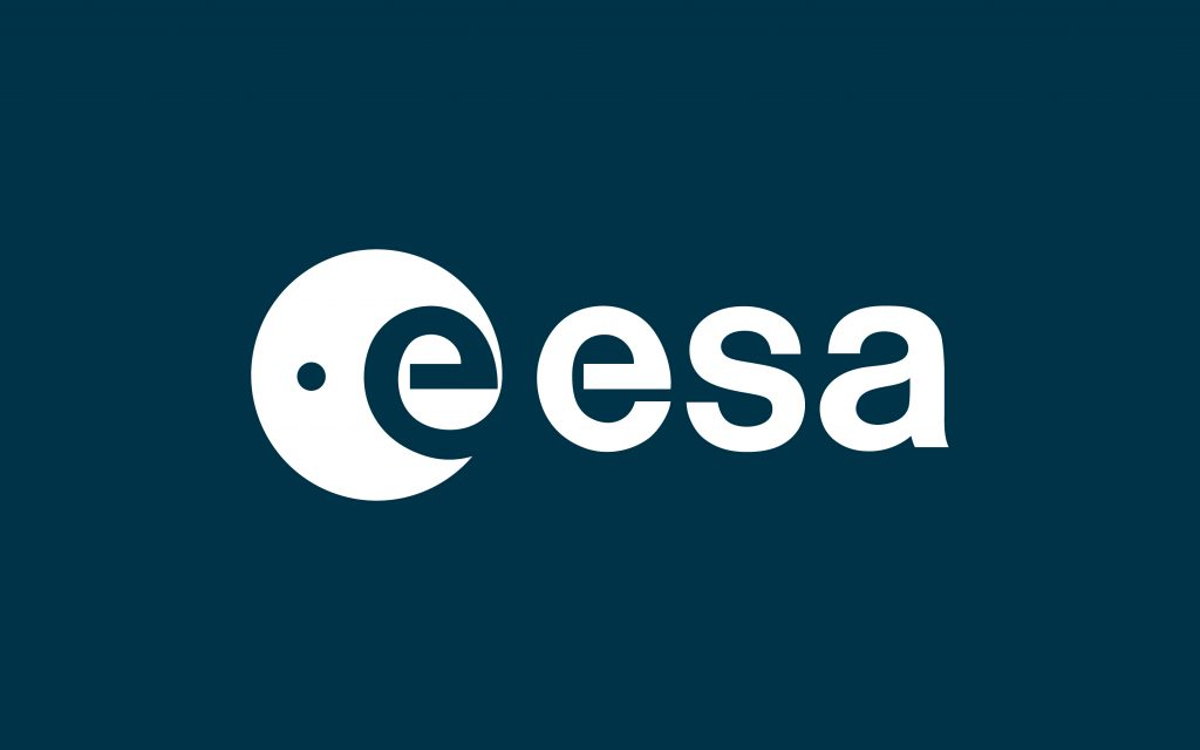
West of England Combined Authority are supporting businesses in the region to explore the benefits from the implementation of digital technologies. Providing access to grant funding, bespoke expertise and guidance for your business as well as skills and training.

The European Space Agency (ESA) is Europe’s gateway to space. Its mission is to shape the development of Europe’s space capability and ensure that investment in space continues to deliver benefits to the citizens of Europe and the world.

The Defence and Security Accelerator find and fund exploitable innovation to support UK defence and security quickly and effectively. Check it out for open calls for funding.

The EO DataHub (EODH) programme has been instigated by UKRI to address challenges around effective exploitation of Earth Observation Data. It represents a first phase of a national asset, supported by the government and specified with the Department of Science, Innovation and Technology (DSIT) alongside NERC. The programme is a pathfinder project led by the National Centre for Earth Observation and a partnership of public sector bodies.
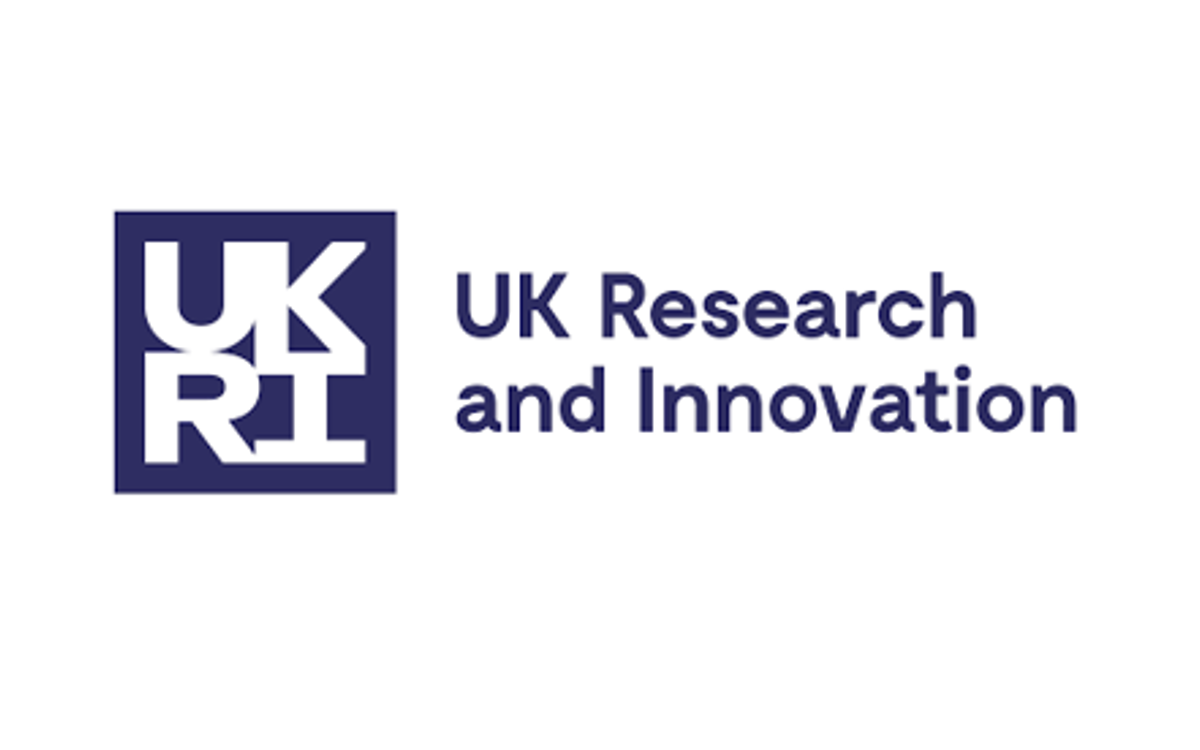
ESA's ARTES Core Competitiveness programme helps European and Canadian industry to develop innovative satcom products, services, systems and partnerships.

The South West Investment Fund is the first in a series of new Nations and Regions Investment Funds being launched by the British Business Bank, and it will deliver a £200 million commitment of new funding to the area. The fund aims to drive sustainable economic growth by supporting innovation and creating local opportunity for new and growing businesses across the South West.

This year, the UK Space Agency is looking to support projects which contribute knowledge relevant to future human and robotic exploration missions.

The purpose of this announcement opportunity is to support academics who have been selected for groups and/or science teams, campaign science groups and other definition work relating to Exploration missions.

Since 2017, the UK has invested €50 million into NavISP to support the UK space PNT sector to innovate the next generation of space-enabled and space-supported navigation products, services and applications.
The UK investment in the programme is available to support UK organisations to undertake technology research and development focused on commercial innovation.

The UK Space Agency is looking to provide support to companies and academic institutions across the UK in developing innovative technologies to grow UK capability. We are keen to engage with start-ups and SMEs (from both within and outside the space sector), as well as established companies and organisations. Collaborative proposals are also welcomed.

Events
Check out our events section to stay informed about upcoming conferences, workshops and networking opportunities in the region. Connect, learn and grow with the best in the field!
Don't miss 'Guardians of the Galaxy: Delivering a Cyber-Secure Space' event on June 6, organised by CyNam in collaboration with Space West, Barclays Eagle Labs, and Crowe UK.
Held in Cheltenham Town Centre, this event will bring together government and industrial space and cyber communities to explore how to ensure the security and resilience of UK space capabilities. Join us for insightful discussions and networking opportunities!
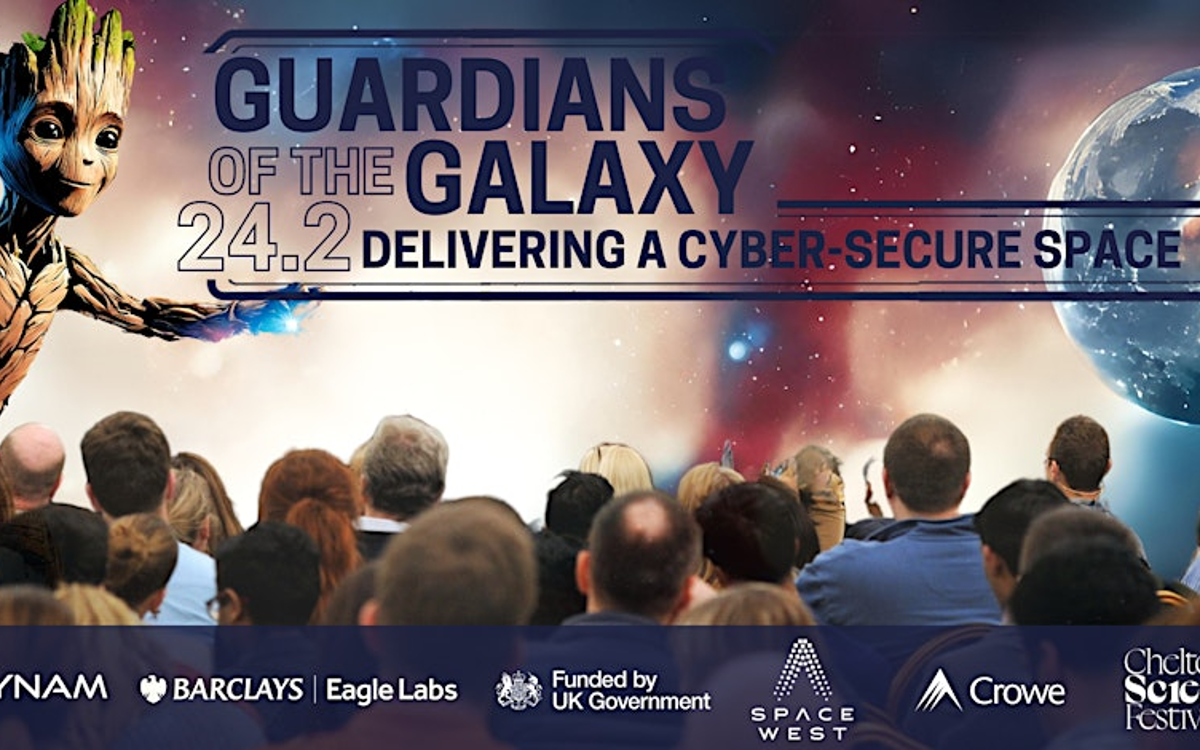
Acting as a catalyst for commercial success, Ignite Space conference and exhibition 2024 will create opportunities for you and your business to engage with new customers, collaborators and investors within the UK space industry and its supply chain. The event runs from 11-12 June 2024 and will be held at the Royal Armouries, Leeds. Book your free place now!

Don't miss Defence in Space a two-day free International event tackling a diversity of topics from both the industry & the public sector. Rebecca Huffee, Space West Cluster Manager will be there. Topics include MilSat, Space ISR, Space Domain Awareness, Earth Observation, Geospatial, Multi-orbits, PNT, Satcom, Space Security & Cyber and Defence Strategies. This conference is free of charge and organised by and for the Space & Defence industry.
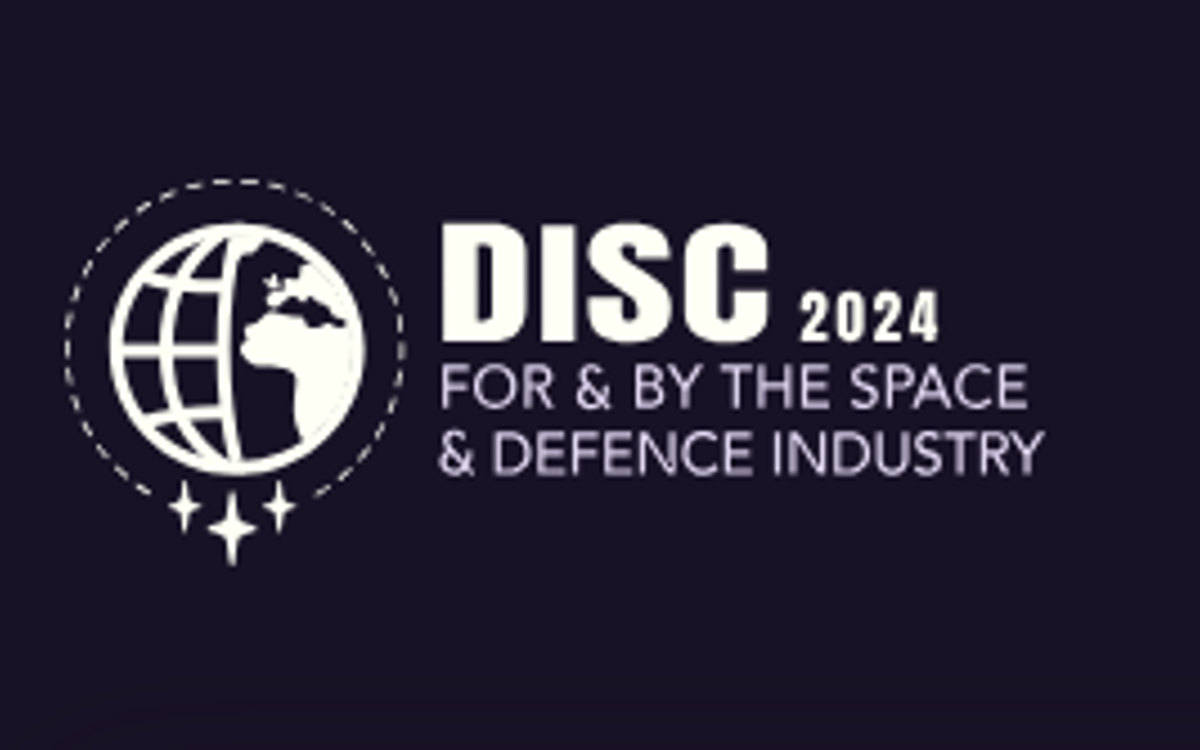
Every two years, the aerospace, aviation and defence industries are invited to Farnborough International Exhibition & Conference Centre for the world’s best airshow to pioneer change, build new connections, engage with thought leaders and get access to unparalleled business development opportunities.
Rebecca Huffee, Space West Cluster Manager, will there on behalf of Space West.

Jobs in the Space West Region
Looking for your next career move in the space industry? Explore our jobs section to find exciting opportunities right here in the region. From engineering roles to business development, your dream job in space awaits!
The role
As a Satellite Communications Engineer you’ll have a role that’s out of the ordinary. Babcock have been awarded the contract to manage and modernise the UK MOD satellite network, Skynet. As part of this programme, we are looking for an experienced Satellite Communications Systems Engineer to lead the upgrade of Radio Frequency (RF) and Intermediate Frequency (IF) Systems.
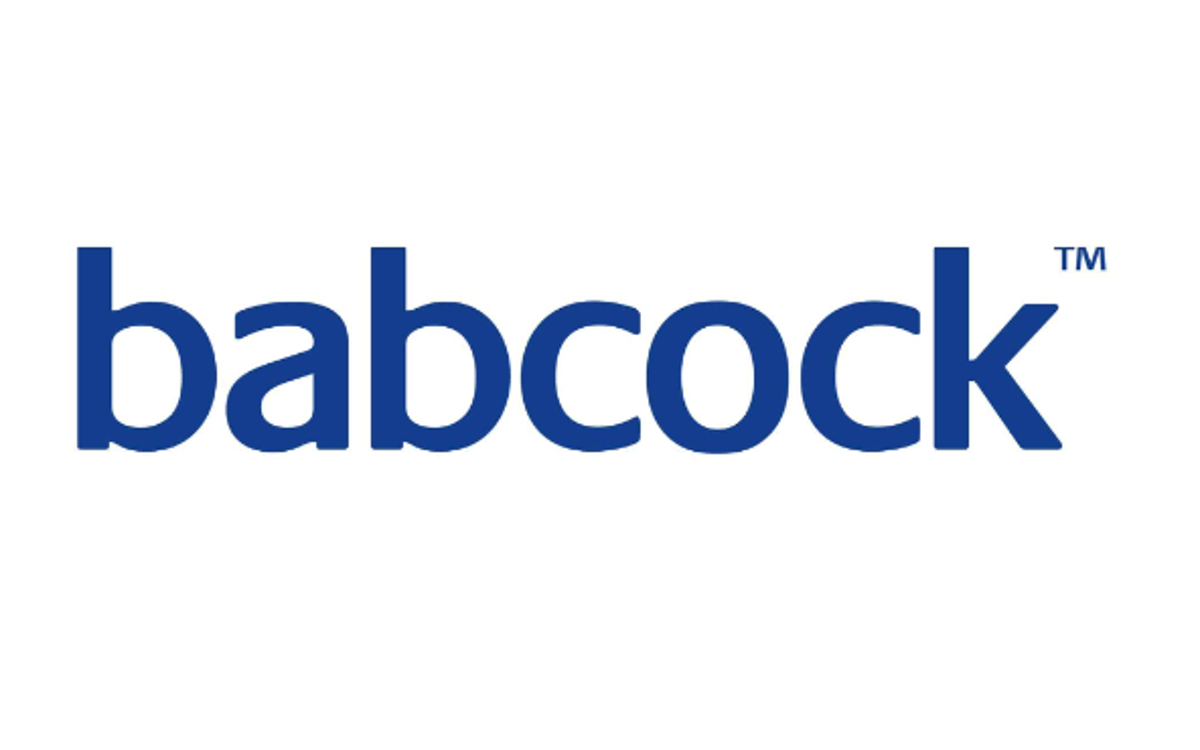
The role
As a Network Management System Lead, you’ll have a role that’s out of the ordinary. Babcock have been awarded the contract to manage and develop the UK MOD satellite network, Skynet. As part of this an extensive modernisation programme is taking place.

The role
As the Assistant Chief Engineer – Voice & DATA, you’ll have a role that’s out of the ordinary. As a senior member of the engineering discipline, collaboration and working in partnership comes naturally. You are someone who owns and delivers, who champions high performance and is courageous to challenge the status quo when we need to do better.

The role
As an Assistant Chief Engineer you’ll have a role that’s out of the ordinary. Mission Systems enable our customers to deliver their mission, through our products and solutions, using intelligence and analysis and delivering critical communication services. Our aim is to be at the centre of our customers' modern digital backbone by connecting and delivering sensors, decision support, and air effectors across military and business domains.

The role
As a Third Line Support Engineer, you’ll have a role that’s out of the ordinary. You will be key in the undertaking of fault investigations and performing upgrades and enhancements. You will also support an On-call rota for out of hours support.

The role
We are looking for a Propulsion System Engineer to join our team in the UK. You will become part of a growing Spacecraft Propulsion and Thermal group. Within this team, you will contribute to the definition and improvement of the Propulsion System designs of Spacecrafts. The activities will range from the specification definition up to the support to AIV activities and will include the execution of tests and technical interactions with suppliers.

The role
D-Orbit is hiring a systems engineer to join our growing UK systems engineering team. As an integral part of the group, you will be involved in both the customization of already flight-qualified platforms, such as the ION Satellite Carrier Vehicle, and the design of new advanced missions. Your ultimate objective as a systems engineer is to ensure your systems, the spacecraft, will fly safely to orbit, deliver the services required by mission objectives and eventually successfully accomplish its disposal.

The role
As a Spaceflight Operation Development Engineer, you will be involved in the design, development, verification, and validation of some of D-Orbit's most innovative space missions. Within this role, you will lead all pre-launch flight operations preparation activities for the missions that you will be assigned to.

The role
D-Orbit is hiring a system engineer to join our growing system engineering team. As an integral part of the group, you will be involved in both the customization of already flight-qualified platforms, such as the ION Satellite Carrier Vehicle, and the design of new advanced missions. Your ultimate objective as a system engineer is to ensure your system, the spacecraft, will fly safely to orbit, deliver the services required by mission objectives and eventually successfully accomplish its disposal.

The role
We are looking for an innovative individual who can develop technical solutions, lead technical delivery, engage clients and build business in growing UK and international markets, but predominantly space.

The role
- Lead the application of iCOMAT's technology in the space domain working with customers and colleagues to create and optimise products for space.
- Act as the design authority for space bids and projects providing advice to colleagues in production and programme management.
- Support the formulation of plans for product and technology development.
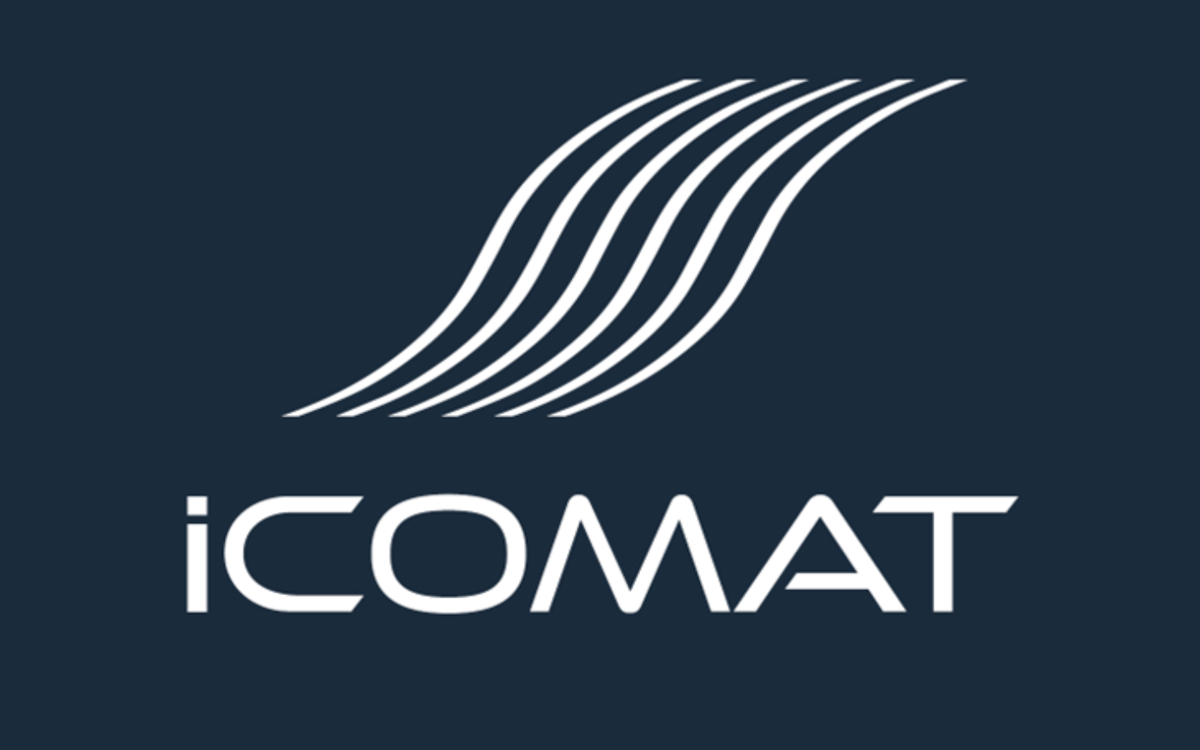
The role
- Lead the development of relationships with customers, partners and other stakeholders in the space sector and the identification of new opportunities for manufacturing sales and collaborative R&D opportunities.
- Develop, manage and deliver a backlog of sales opportunities using a structured, complex selling methodology.
- Provide direction and oversight to bids and the development of current contracts

Starion UK, now headquartered in Bath, is keen to recruit the best expertise to deliver space segment and ground segment systems and studies. Whilst there is not currently a recruitment campaign underway, we welcome CV’s from those seeking roles in these areas. If you are interested, please email [email protected] before the end of June 2024
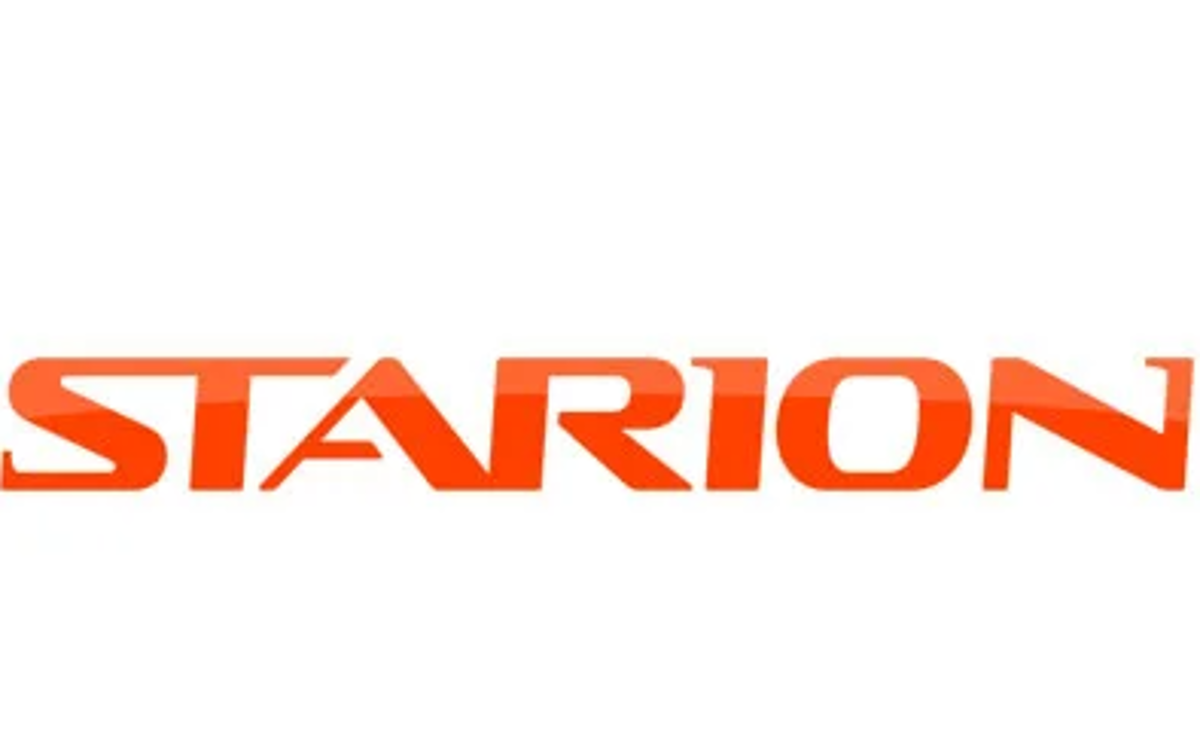
Space West 2024 Activity Page
Stay connected and witness our exciting endeavors throughout the year. Explore upcoming events, collaborative initiatives, and engaging projects.
